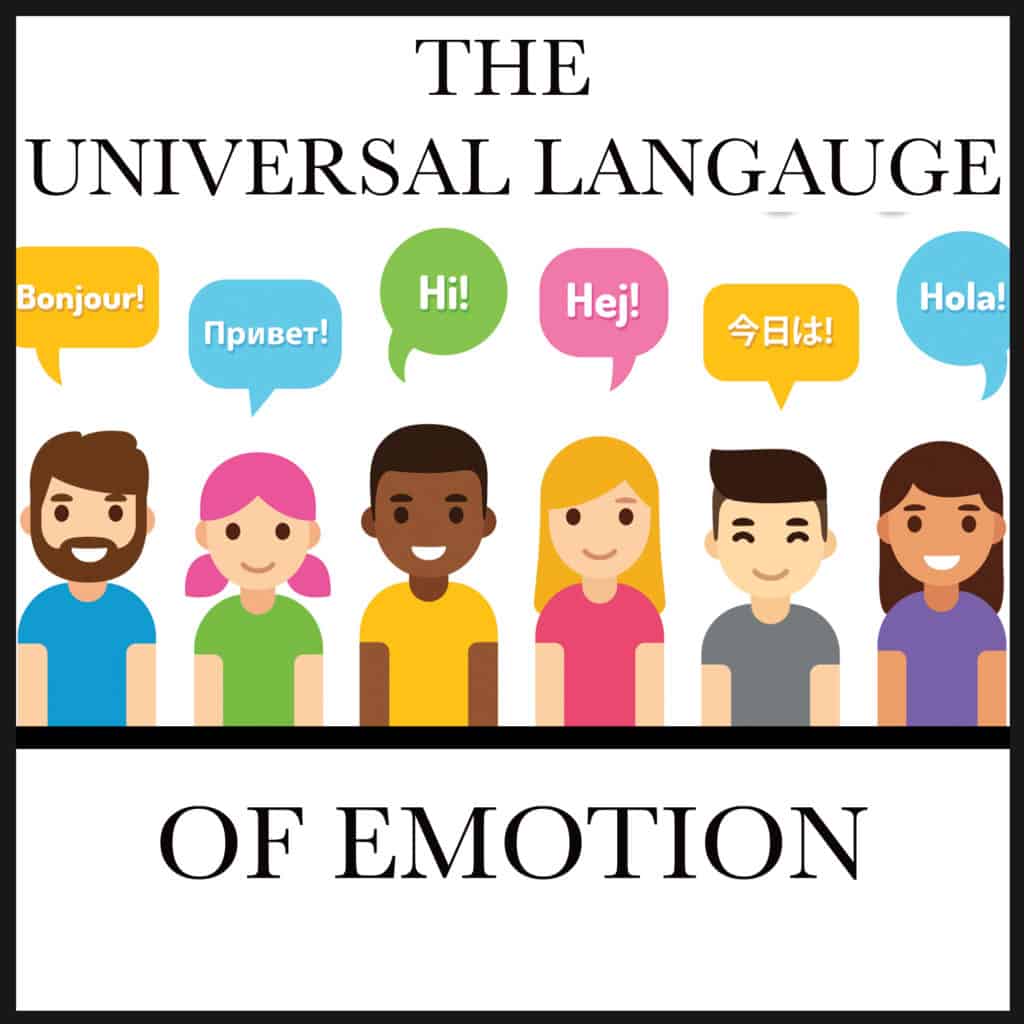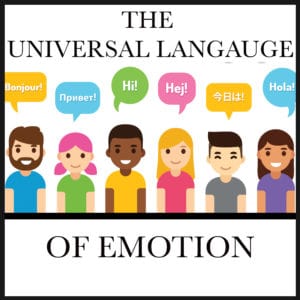
By Robert Simmons
Right out of the womb, We let our feelings be known. And immediately, We are understood.
But things get so complicated after awhile, so luckily people invented words, and immediately everything was much more clear, because words allow us to convey the truth about All Things, and emotions are…sorry, I’m a guy, I don’t know what emotions are for.
Allegedly, when a method actor calls up tangible emotions during a scene, they are not thinking about the actual “line” being delivered, they are thinking about a previous personal experience they’ve had, one that triggers the appropriate emotion for that moment in the scene. Those actors who receive the little gold statues are the ones that best connect with Us [the audience] emotionally; who somehow communicate to Us in this secret code of “emotion”, which is often contrary to the words coming out of their mouths. It is almost as if Emotions are more truthful and more trusted than the words being spoken. Weird.
Everyday, as some of Us sit there stewing in Our own juices, We cannot help but wonder why God cursed Us with emotions in the first place, but since We cannot seem to be rid of them, perhaps We should at least start “employing” Our emotions so they work for Us instead of always against Us.
When We communicate with people on the other side of the aisle, We are really not communicating at all. You hear what I am saying, and you can tell I am angry about it, but my words are almost too complicated to decipher, my reasoning seems flawed, and my conclusions are not your conclusions. All of this only serves to frustrate you; meanwhile, you are likely to misconstrue my anger as a personal affront, which winds up putting Us both in a defensive posture.
Like good method actors, let’s dissect this “scene” We are playing. I am angry about something, and in reality, that something is not actually known to you, no matter what words are coming out of my mouth. You will have to let go of knowing this for a moment and only deal with what you do know: my anger, and your frustration. Frustration often comes from the impatience of not understanding, or not being understood. For you, it is probably both. Hold that thought. Always seek to Understand first. This will calm the other person, and allow them to listen better when you explain your “frustration” later on. Do not go anywhere near the overlying issues, until you are at least relating emotionally. As a fellow “actor” in this “scene”, you must reference some previous personal experience that left you angry. If you cannot see any connection between your “referenced” anger and my “current” anger, you might have to say, “I know you are angry. I tend to get super pissed off when…” Hopefully, if there is no real underlying psychosis or deep-seated emotional trauma in me, the depths of which cannot be reached, together maybe there can be a connection somewhere underneath the surface of the conversation, and once we are hovering at the same “depth”, maybe We can both float to the surface together and start the actual conversation over, only this time minus the emotional lack of trust that was clouding the communication process.
It may not work. Two other scenarios might occur. Perhaps I only wanted my feelings to be acknowledged, and strangely, I have no other actual agenda. You might get your way simply by making me feel “understood”. The other possibility is that I won’t play this game with you, which could legitimately prompt you to ask me whether what I am seeking is important enough to me; “which is more important? Being happy or being right? Is venting simply your goal? Or do you have a more important end in mind? Here is what I want. What is it you want? If you cannot name it in one sentence, you have not thought about it long enough. Whittle it down to one sentence and then come back and we can work on achieving it together, because whatever it is, you and I and everyone else needs to want what you want, too”.
Why go to the trouble? If you know what you want, and it is important enough to you, you will make the effort. And if you do not know what you want, you will wind up doing what someone else wants. Someone who knew what they wanted, and did make the effort. If you find this to be acceptable, then go with the flow, roll with the punches, duck and cover when necessary.

 Role Of Parenting
Role Of Parenting